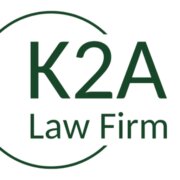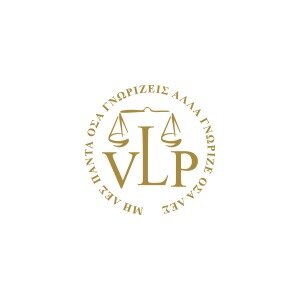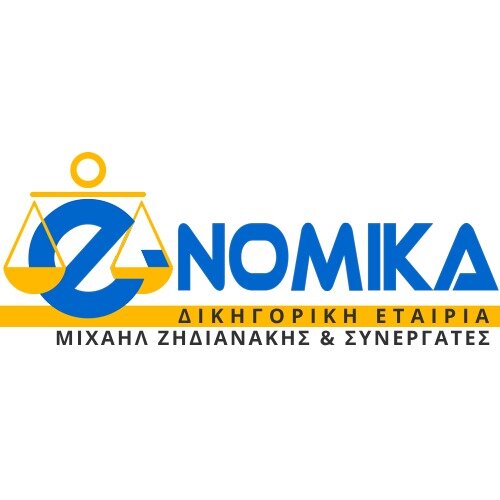Best Tax Increment Financing Lawyers in Thessaloniki
Share your needs with us, get contacted by law firms.
Free. Takes 2 min.
List of the best lawyers in Thessaloniki, Greece
About Tax Increment Financing Law in Thessaloniki, Greece
Tax Increment Financing (TIF) is a public financing method that is used to subsidize infrastructure and community-improvement projects. In Thessaloniki, Greece, TIF provides a way for municipalities to fund redevelopment projects that aim to revitalize urban areas. This financial tool allows a municipality to attract investment, spur economic growth, and rejuvenate underserved districts by committing future tax revenues generated by the project to repay upfront costs.
TIF in Thessaloniki is grounded in Greek national law, with specific regulations at the local level making it suitable for the city's unique urban development needs. The success of TIF in Thessaloniki has historically depended on strategic planning, transparency, and cooperation between public entities and private investors.
Why You May Need a Lawyer
Engaging a lawyer in TIF matters can be essential for several reasons:
- Complex Legal Framework: TIF involves understanding both national and local laws, which can be complex and intricate. A lawyer can help navigate these legal stipulations.
- Contractual Agreements: Lawyers are crucial in drafting and reviewing contracts to ensure that the interests of the involved parties are protected, and legal compliance is achieved.
- Dispute Resolution: Should disputes arise over TIF projects, legal representation will be necessary to mediate conflicts or represent parties in court.
- Compliance and Due Diligence: Lawyers can assist with compliance checks and due diligence processes, ensuring projects abide by all relevant regulations and standards.
- Negotiation Skills: Legal assistance is valuable during negotiations between municipalities and private developers to secure favorable terms.
Local Laws Overview
The local laws governing TIF in Thessaloniki incorporate both national Greek legislation and specific municipal regulations that align with the city’s development plans. Key aspects include:
- Eligibility Criteria: Projects eligible for TIF in Thessaloniki are typically those that offer significant potential for urban renewal, economic development, or infrastructure improvements.
- Approval Process: Proposed projects must go through a comprehensive approval process, requiring feasibility studies, community impact assessments, and official ratification by municipal authorities.
- Financing Structure: TIF arrangements in Thessaloniki tend to include detailed provisions on how anticipated tax increments will be used to repay funding, emphasizing sustainable financial planning.
- Public-Private Partnership (PPP): Many TIF projects in Thessaloniki operate under PPP models where roles, responsibilities, and financial stakes of each party are clearly delineated.
Frequently Asked Questions
1. What is Tax Increment Financing (TIF)?
Tax Increment Financing is a method of funding public infrastructure improvements through the future increase in tax revenues that these improvements are expected to generate.
2. How does TIF work in Thessaloniki?
In Thessaloniki, TIF is used to fund projects that improve urban landscapes, attract business investments, and support economic development by leveraging anticipated future tax increments.
3. Can private developers benefit from TIF incentives?
Yes, private developers can benefit as TIF provides a framework that may alleviate some upfront financial burdens, making projects more viable and profitable over time.
4. Are TIF projects limited to specific areas within Thessaloniki?
Yes, TIF is often applied to designated redevelopment districts within Thessaloniki that have been identified for revitalization and economic upliftment.
5. What are the risks associated with TIF?
Risks include the project’s inability to generate the projected increment in tax revenue, potential for community opposition, and financial discrepancies.
6. How are TIF funds used?
TIF funds are primarily used to cover the costs of projects, such as infrastructure improvements, land acquisitions, and public facility enhancements.
7. Who oversees TIF projects in Thessaloniki?
The oversight of TIF projects in Thessaloniki is typically managed by local municipal authorities in conjunction with the regional government.
8. What is the first step in initiating a TIF project?
The first step generally involves conducting a feasibility study to assess the potential impact and financial viability of the project.
9. How does TIF impact local communities?
TIF can significantly improve living conditions, enhance urban landscapes, and create job opportunities, but it also carries the risk of displacing existing communities.
10. What happens if a TIF project does not generate enough revenue?
If a TIF project underperforms, it may result in financial shortfalls. Legal frameworks often have provisions for addressing such issues, including renegotiating terms or seeking alternative funding.
Additional Resources
For further information on TIF in Thessaloniki, consider reaching out to:
- Municipal Authority of Thessaloniki: Provides guidelines and support for local TIF projects.
- Ministry of Finance (Greece): Oversee national laws and economic policies related to TIF.
- Elected Representatives: Local council members may offer insight into ongoing and upcoming TIF projects.
Next Steps
If you need legal assistance in Tax Increment Financing, consider the following steps:
- Research Legal Professionals: Look for lawyers specializing in TIF or related fields of urban development law.
- Consult with Experts: Schedule consultations to discuss your specific needs and understand their approach to handling TIF matters.
- Gather Documentation: Collect all relevant documentation, including project plans, feasibility studies, and financial projections before meeting with your lawyer.
- Engage Legal Services: Once you identify a suitable lawyer, engage their services to assist with contract drafting, negotiations, compliance, and any dispute resolutions.
Lawzana helps you find the best lawyers and law firms in Thessaloniki through a curated and pre-screened list of qualified legal professionals. Our platform offers rankings and detailed profiles of attorneys and law firms, allowing you to compare based on practice areas, including Tax Increment Financing, experience, and client feedback.
Each profile includes a description of the firm's areas of practice, client reviews, team members and partners, year of establishment, spoken languages, office locations, contact information, social media presence, and any published articles or resources. Most firms on our platform speak English and are experienced in both local and international legal matters.
Get a quote from top-rated law firms in Thessaloniki, Greece — quickly, securely, and without unnecessary hassle.
Disclaimer:
The information provided on this page is for general informational purposes only and does not constitute legal advice. While we strive to ensure the accuracy and relevance of the content, legal information may change over time, and interpretations of the law can vary. You should always consult with a qualified legal professional for advice specific to your situation.
We disclaim all liability for actions taken or not taken based on the content of this page. If you believe any information is incorrect or outdated, please contact us, and we will review and update it where appropriate.

















